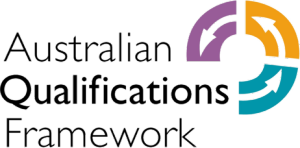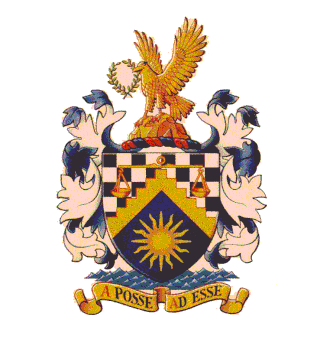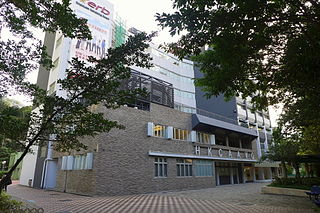This article needs additional citations for verification .(July 2020) |
The Federation of Awarding Bodies is the British trade association for awarding bodies and professional associations. The current chief executive is Rob Nitsch.
This article needs additional citations for verification .(July 2020) |
The Federation of Awarding Bodies is the British trade association for awarding bodies and professional associations. The current chief executive is Rob Nitsch.
It was founded in 2000.
It represents providers of technical vocational education qualifications, not providers of general academic qualifications such as A Levels and GCSEs. [1] [2]
While the Federation has a mailing address in Grosvenor Square, London, the staff are home based. As of 2023, FAB has 8 members of staff and Board of 2 co-chairs, a treasurer and 9 non-executive directors. It represents 117 full members and holds two flagship conferences each year, one of which is dedicated to End Point Assessment (EPA), most commonly associated with apprenticeships.

Vocational education is education that prepares people for a skilled craft as an artisan, trade as a tradesperson, or work as a technician. Vocational education can also be seen as that type of education given to an individual to prepare that individual to be gainfully employed or self employed with requisite skill. Vocational education is known by a variety of names, depending on the country concerned, including career and technical education, or acronyms such as TVET and TAFE.
Further education in the United Kingdom and Ireland is additional education to that received at secondary school that is distinct from the higher education (HE) offered in universities and other academic institutions. It may be at any level in compulsory secondary education, from entry to higher level qualifications such as awards, certificates, diplomas and other vocational, competency-based qualifications through awarding organisations including City and Guilds, Edexcel (BTEC) and OCR. FE colleges may also offer HE qualifications such as HNC, HND, foundation degree or PGCE. The colleges are also a large service provider for apprenticeships where most of the training takes place at the apprentices' workplace, supplemented with day release into college.

The City and Guilds of London Institute is an educational organisation in the United Kingdom. Founded on 11 November 1878 by the City of London and 16 livery companies to develop a national system of technical education, the institute has been operating under royal charter, granted by Queen Victoria, since 1900. The Prince of Wales, later King Edward VII, was appointed the first president of the institute.

LIBF is a for-profit provider of degrees and professional qualifications and a professional body. LIBF was spun off from the London Institute of Banking & Finance in 2023 and became a subsidiary of IU Group.

The Association of Accounting Technicians (AAT) is a UK-headquartered, global professional body for accounting technicians and bookkeepers, as well as a major provider of finance and accounting qualifications in the UK.

The Australian Qualifications Framework (AQF) specifies the standards for educational qualifications in Australia. It is administered nationally by the Australian Government's Department of Industry, with oversight from the States and Territories, through the Standing Council of Tertiary Education Skills and Employment. While the AQF specifies the standards, education and training organisations are authorised by accrediting authorities to issue a qualification.
Legal executives are a kind of trained legal professional in certain jurisdictions. They often specialise in a particular area of law. A legal executive usually receives both vocational training and academic training.
A national qualifications framework (NQF) is a formal system describing qualifications. 47 countries participating in the Bologna Process are committed to producing a national qualifications framework. Other countries not part of this process also have national qualifications frameworks.

The Society of Business Practitioners (SBP) UK, founded in 1956, is a senior examining UK institution providing vocational qualifications in business, computer studies, management and marketing. The Society's Diploma awards attract recognized credits and exemptions from other institutes and educational establishments from the UK, the US and Australia. The Society also has a collaborative credit recognition arrangement with the New Zealand College of Business.

The Hong Kong Council for Accreditation of Academic and Vocational Qualifications (HKCAAVQ), (HKCAA) is a statutory body established under the HKCAAVQ Ordinance which came into effect on 1 October 2007.

The Institute of Financial Accountants (IFA) is a professional accountancy body representing and providing certification for financial accountants in the United Kingdom. The IFA is a full member of the International Federation of Accountants.
The Malaysian Qualifications Framework or the MQF is a unified system of post secondary qualifications offered on a national basis in Malaysia. It is administered by the Malaysian Qualifications Agency (MQA), a statutory body under the purview of the Ministry of Higher Education (MOHE).
The Institute for Learning (IfL) was a voluntary membership, UK professional body. It ceased operating on 31 October 2014. Although precise membership figures and statistical details had been removed from IfL's webpage prior to its closure, at the end of financial year 2013-2014 IfL were reported as having only 33,500 of their 200,000 members remaining.
Higher education accreditation is a type of quality assurance process under which services and operations of post-secondary educational institutions or programs are evaluated to determine if applicable standards are met. If standards are met, accredited status is granted by the agency.

The European Federation for Welding, Joining and Cutting (EWF) is an organization dedicated to education, training, qualification and certification in the field of welding and related technologies.

The Education functional constituency, formerly called Teaching from 1985 to 1995, is a functional constituency in the elections for the Legislative Council of Hong Kong. It was one of the 12 functional constituency seats created for the 1985 Legislative Council election. Since 1998, It has been the functional constituency with the most registered voters, including registered teachers, principals, managers of schools, full-time academic staff, members of the councils of the universities in Hong Kong and board of governors of the institutes of higher educations. In 2020, it had 85,698 registered voters, as compared to the Finance constituency who had only 121 voters.

The Vocational Training Council (VTC) is the largest vocational education, training and professional development group in Hong Kong. Established in 1982, the VTC provides credentials for some 250,000 students each year through a full range of pre-employment and in-service programmes with internationally recognised qualifications.
NCFE is an awarding organisation and registered educational charity providing qualifications in England, Wales and Northern Ireland. NCFE is regulated by Ofqual in England, and recognised by Qualifications Wales and the Council for the Curriculum, Examinations & Assessment in Northern Ireland.

Tertiary education in New Zealand is provided by universities, institutes of technology and polytechnics, private training establishments, industry training organisations, and wānanga. It ranges from informal non-assessed community courses in schools through to undergraduate degrees and research-based postgraduate degrees. All post-compulsory education is regulated within the New Zealand Qualifications Framework, a unified system of national qualifications for schools, vocational education and training, and 'higher' education. The New Zealand Qualifications Authority (NZQA) is responsible for quality assuring all courses and tertiary education organisations other than universities. Under the Education Act 1989, The Committee on University Academic Programmes (CUAP) and the Academic Quality Agency (AQA) have delegated authority for quality assurance of university education. The Tertiary Education Commission (TEC) is responsible for administering the funding of tertiary education, primarily through negotiated investment plans with each funded organisation.